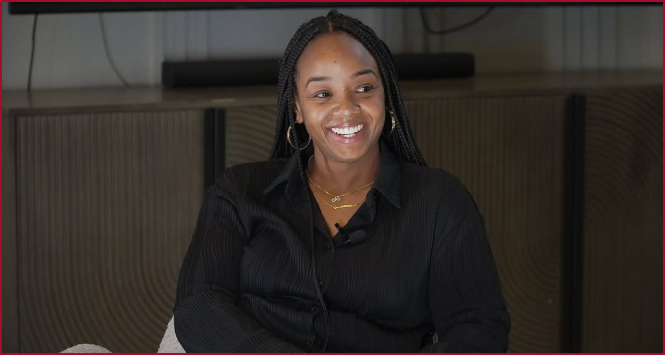In a powerful and widely shared Instagram post, licensed therapist and certified coach Raquel Hopkins is flipping the script on how we understand emotional healing.
She is challenging followers to reflect on whether they’re speaking from growth or simply being “smart about their pain.”
You’re not healed if your words are still rooted in fear,” she says in viral post.
“Language exposes where you’re really at,” Hopkins explains in a video accompanying her post. “You can talk all day about how much you’ve overcome, but if your words are still rooted in resentment and self-preservation, you may not actually be moving forward.”
Hopkins, who credits her coaching certification for deepening her ability to listen beyond surface-level narratives, also spoke about the importance of recognizing the emotional tone behind our carefully crafted self-awareness.
According to her, even well-rehearsed insights and eloquent reflections can mask unhealed wounds if the language is rooted in fear, anger, or self-protection.
“It sounds strong—but it’s really pain disguised as power,” she says, describing phrases like ‘I’m cutting everyone off to protect my peace’ as common but misleading.
Instead, Hopkins teaches clients to reframe their language in a way that reflects integrated healing. Growth, she explains, sounds like:
“Learning how to set boundaries while staying open to connection… Prioritizing relationships that challenge me to be better.”

Hopkins’ clinical insight is that true healing isn’t performative—it’s integrated. “I don’t just help people sound better,” she writes in her caption. “I help them become better.”
Her approach resonates with clients who, she says, walk away with “real peace” instead of “hype” or temporary coping mechanisms. Among the sustainable results she lists:
- Setting boundaries without isolating
- Choosing growth without needing permission
- Leading and loving without being led by fear
Hopkins ends her message with a self-reflective question for anyone on a healing journey:
“Am I speaking from a place of pain because it feels safe and familiar? Or am I choosing language that reflects ownership and growth, even when it’s uncomfortable?”
For those ready to take the first step, Hopkins offers a free eBook to begin the journey toward lasting inner transformation.
Hopkins’ work—blending therapy, coaching, and intuitive listening—underscores a growing shift in mental health conversations online: one that prioritizes not just how we feel, but how we speak.
